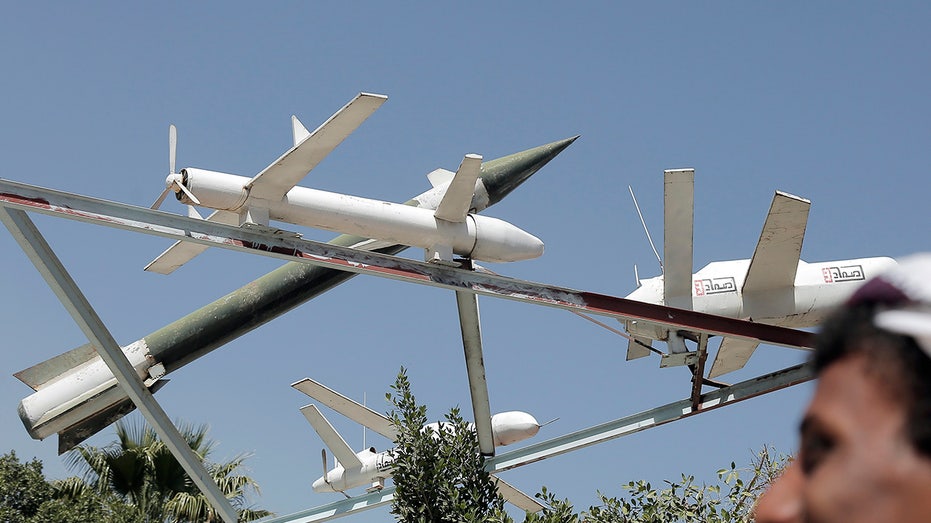The Pentagon unveiled a new counter-drone strategy after a spate of incursions near U.S. bases prompted concerns over a lack of an action plan for the increasing threat of unmanned aerial vehicles.
Though much of the strategy remains classified, Defense Secretary Lloyd Austin will implement a new counter-drone office within the Pentagon – Joint Counter-Small UAS Office – and a new Warfighter Senior Integration Group, according to a new memo.
The Pentagon will also begin work on a second Replicator initiative, but it will be up to the incoming Trump administration to decide whether to fund this plan. The first Replicator initiative worked to field inexpensive, dispensable drones to thwart drone attacks by adversarial groups across the Middle East and elsewhere.
The memo warned that the increased use of unmanned systems must reshape U.S. tactics, as they make it easier for adversaries to ‘surveil, disrupt and attack our forces … potentially without attribution.’
The plan outlines a five-pronged approach: deepening understanding of enemy drones, launching offensive campaigns to thwart their ability to build such systems, improving ‘active and passive’ defenses to such attacks, rapid increase of production of counter-drone systems and making counter-drone focus a top priority for future force development.
For the past year, Iran-backed Houthi rebels have been using small, one-way unmanned aerial systems to strike western shipping routes in the Red Sea.
That has led to perilous waters along a trade route that typically sees some $1 trillion in goods pass through it, as well as shipments of aid to war-torn Sudan and the Yemeni people.
Some experts have deemed the U.S. response inadequate in deterring the Houthis from inflicting billions of dollars worth of damage to the global economy.
Additionally, the cost of U.S. response to such attacks is disproportionate. While the Houthi drones are estimated to cost around $2,000 each, the naval missiles the U.S. fires back can run around $2 million a shot.
In September, Houthis took out two U.S. Reaper drones in a week, machinery that costs around $30 million a piece.
Deadly drone strikes have also been launched by both sides in Russia’s war on Ukraine.
‘Unmanned systems pose both an urgent and enduring threat to U.S. personnel, facilities, and assets overseas,’ the Pentagon said in a statement on Thursday announcing the strategy.
‘By producing a singular Strategy for Countering Unmanned Systems, the Secretary and the Department are orienting around a common understanding of the challenge and a shared approach to addressing it.’
Three U.S. service members were killed in a drone strike in January in Jordan. Experts warned the U.S. lacks a clear counter-drone procedure after 17 unmanned vehicles traipsed into restricted airspace over Langley Air Force Base in Virginia last December.
The mystery drones swarmed for more than two weeks. Lack of a standard protocol for such incursions left Langley officials unsure of what to do – other than allow the 20-foot-long drones to hover near their classified facilities.
Langley is home to some of the nation’s most vital top secret facilities and the F-22 Raptor stealth fighters.
Two months prior to Langley, in October 2023, five drones flew over the Energy Department’s Nevada National Security Site, used for nuclear weapons experiments. U.S. authorities were not sure who was behind those drones either.
A Chinese surveillance balloon traversed over the U.S. for a week last year before the Air Force shot it down off the coast.
The Air Force’s Plant 42 in California, home to highly classified aerospace development, has also seen a slew of unidentified drone incursions in 2024, prompting flight restrictions around the facility.
